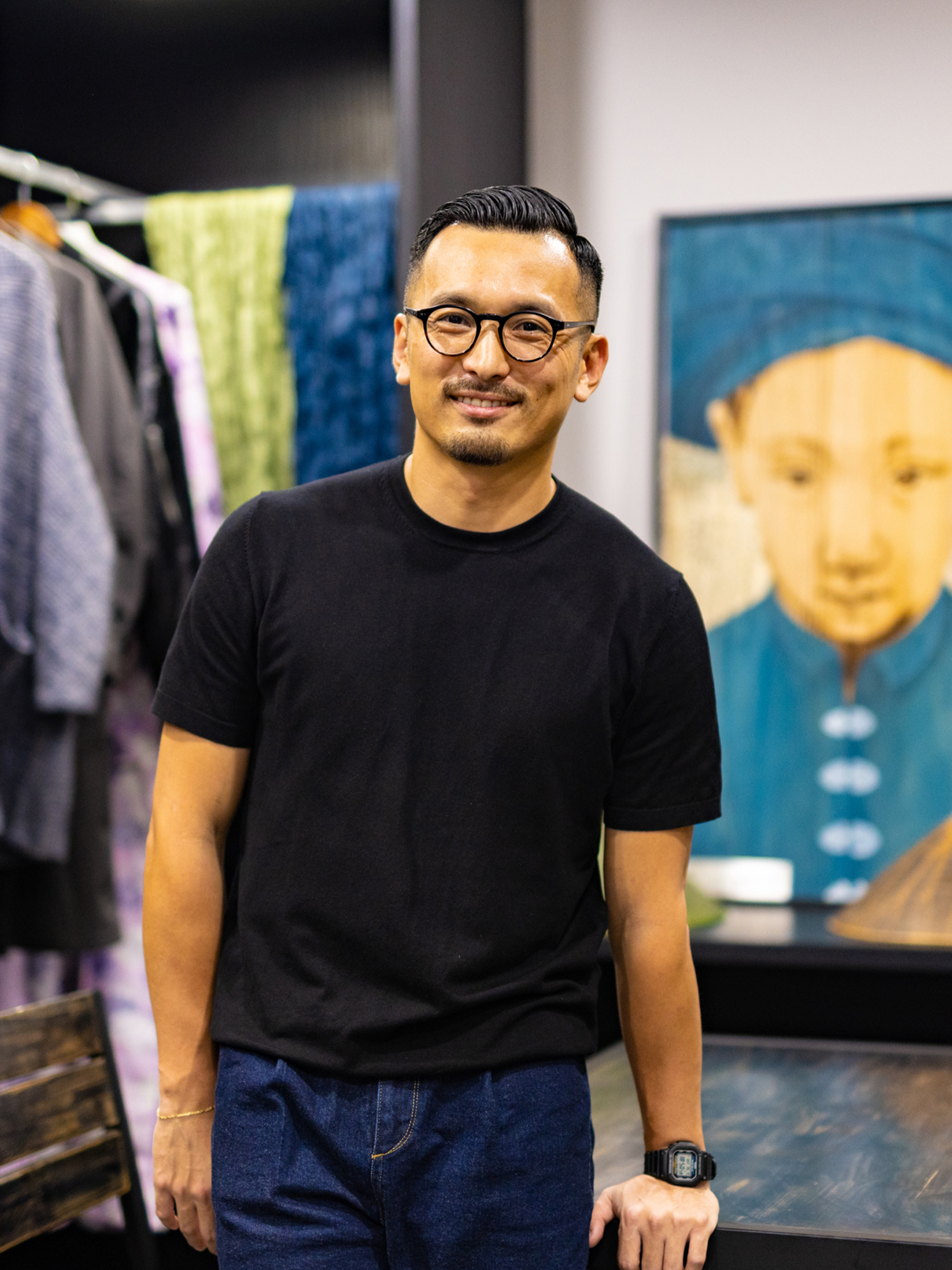
Akito Teramura
lease tell us about your role in the An Nam Factory.
I am responsible for the overall management of the production and operation of the factory. Since the An Nam Factory is about 2.5 times the size of the Tokyo Dome, it is very difficult to manage the entire factory, but what is especially difficult is how to bring people together. What is generally recognized by the Japanese is not generally recognized by the Vietnamese, and the goals of the Vietnamese and the goals of the Japanese are completely different. This is due to a difference in perceptions. The work of changing different perceptions into the same perceptions requires a lot of effort, but I feel that this is an important role that has been entrusted to me.
When the factory started operation, we mainly recruited people with sewing experience, but now we are actively recruiting inexperienced people. People with sewing experience have an advantage in terms of skills and knowledge, but basically, we welcome inexperienced people who are full of motivation. I feel that Vietnamese workers are more committed to their work than workers in other countries. But as I said, there is a difference in perceptions, so I must be careful about how to communicate with Vietnamese personnel. Communication skills are needed to clearly express what we expect from them and to be persistent until they understand.
At work or in the company, what would you like to challenge and achieve in the future?
First, I would like to expand the An Nam Factory. My goal is to make it the No. 1 garment factory among MATSUOKA’s factories around the world. To become the world’s No. 1, I think it is necessary to take on the challenge of establishing a new business model in addition to expanding the factory.
When I left Japan, I became keenly aware of the “weaknesses in Japan’s competitiveness.” Maybe, this is just my personal assumption, but when I was in Japan, I thought, “Japan is a great country! Overseas countries must really respect it.” But the reality was completely different, and Japan’s influence was negligible. That was the first time I realized that I had unfounded stereotypes about Japan. The reality was disappointing.
The An Nam Factory is still under development and will take some time to reach its final form. The first phase is to realize stable factory operations. In the next phase, I would like to diversify its business. That means entry into new business fields in order to gain competitiveness advantages to compete in global markets.
In preparation for this, I try to propose new ideas and suggestions and create opportunities to discuss them with my supervisor and colleagues. I want to continue to actively take on challenges that will be necessary in the future when considering the future of the company.
What are your challenges outside of work? What do you like to do? Any hobbies?
I got into this business because I really love clothes, so maybe I often unconsciously observe local culture and fashion. When I am abroad, I can experience something new that I can’t get in Japan. For example, once I tried using a long-distance bus that locals often use. And on another occasion, a Vietnamese friend of mine who is a fashion model invited me to a local fashion show. Opportunities to experience the local culture are very stimulating.
From the beginning, I had the saying “When in Rome, do as the Romans do” somewhere in the back of my mind. Before I knew it, “doing as the Romans do” stimulates my enjoyment.
Please tell us what MATSUOKA means to you.
I think it is a place “where I can get opportunities to take on new challenges.” I feel that when I go abroad, I can meet people I would never meet in Japan, hear many different stories, and have many opportunities. Before joining MATSUOKA, I never imagined that I would be able to work with a large global company. In that sense, I think I have already gained valuable experience for myself.
One of our visions for the future is to increase opportunities to do business with even more world-class companies, and I am grateful to be in an environment where I can create and work on such a global vision. I think it is because I work for MATSUOKA, a global player, and appreciate that I can have such a valuable experience.
Comparing before and after you joined the company, what has changed?
I am assigned to the overall management of the factory, and I feel that my view and thoughts about work have changed greatly.
In my previous job, I think I had to focus on details rather than the big picture. Thanks to the opportunities for overall management at MATSUOKA, I realize that I am able to see many things that I did not notice when I was only looking at parts of the picture and details.
Once I was able to see the big picture, I even realized the importance of having future prospects, like thinking about what I need to do next and how to proceed. Not just staying with the work I was working on and doing the tasks I was assigned, I began to think about the next step and the process I need to get there.
Because I am expected to meet my quota and responsibilities and produce results, I try to take a broad perspective on overall management.
*The contents, etc., of this interview are as of the time of the interview.